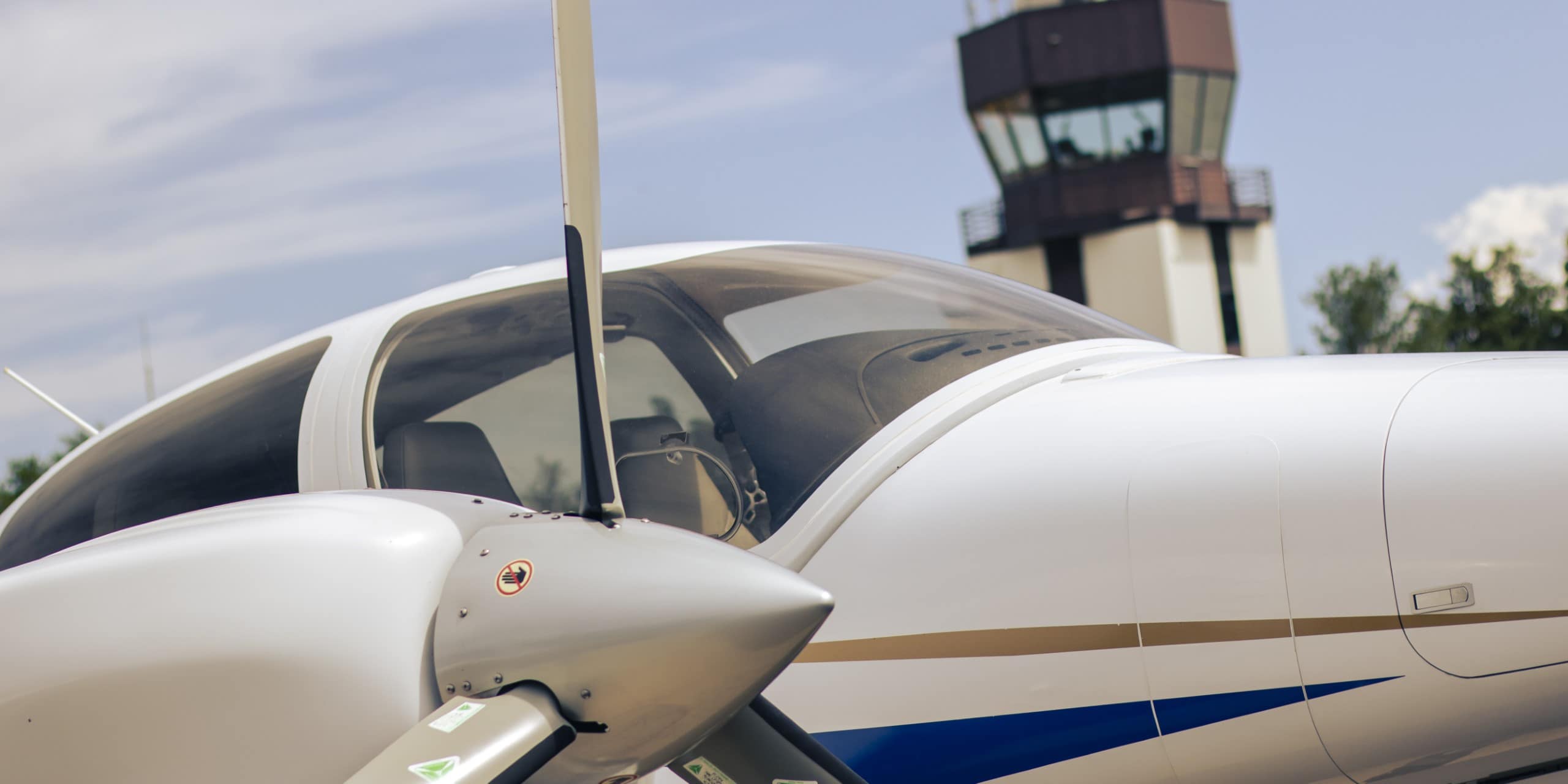
Associate in Science in
Aviation Maintenance Science
Students in the A.S. in Aviation Maintenance Science get the technical basics of airframe and powerplant repair needed to take the A&P test or continue their education.
About the Associate in Science in Aviation Maintenance Science
The aviation industry is currently experiencing a high demand for skilled aircraft maintenance specialists, offering an exciting and promising outlook for individuals considering a career in this field. Opting for a path in aviation maintenance opens doors to secure and fulfilling roles within aviation maintenance.
Embry-Riddle’s Associate in Science in Aviation Maintenance Science (AMS) provides an exceptional starting point for those looking to pursue a successful career as an aviation technician. The program is committed to cultivating top-tier aviation professionals who play a pivotal role in the operation and maintenance of commercial, private and military aircraft.
Why You Should Study this Degree
Aviation Maintenance Science focuses on principles and techniques to ensure the safety and reliability of aircraft through inspection and repair. A career in aviation maintenance may be for you if you:
- Enjoy hands on technical work
- Have a passion for problem solving
- Like working with cutting-edge technology
Student Learning Outcomes
Learning opportunities you will have while studying to become an aviation technician:
- Learn the purpose and operation of airframe, powerplant and related aircraft support systems.
- Interpret and apply written and electronic technical instructions.
- Return an aircraft to an airworthy status after inspections, repairs or alterations.
- Solve advanced aviation maintenance problems using technical competence.
- Use specialized equipment and tools to perform aircraft inspections and maintenance.
Aviation Maintenance Science Career Opportunities
Careers and Employers
Embry-Riddle graduates are set to enter the workforce with a high placement rate of 83.3% within a year of graduation, in sectors such as:
- Airlines
- Commercial Space Operations
- Defense Companies
- Manufacturers
- U.S. Military
Aviation mechanics students often secure roles as:
- A&P Mechanics
- Aircraft Maintenance Supervisors
- Avionics Technicians
- Electronics Technicians
- Quality Assurance Specialists
Aviation Maintenance Science Salary Information
Embry-Riddle provides the opportunity for competitive salaries, with alumni averaging $63,400 annually one-year post graduation, as of 2022.
DETAILS
About Aviation Maintenance Science at the Daytona Beach, FL Campus
The Aviation Maintenance Science program at Embry-Riddle is designed for individuals looking to advance their career in hands-on technical aviation science. This program, housed in the Aviation Maintenance Science Department at the Daytona Beach Campus, is known for producing top- tier aviation professionals.
The courses offered in the Aviation Maintenance Science Department prepare students to take the FAA A&P certification exams. Students who already hold an A&P certification prior to enrolling at Embry-Riddle will receive transfer credit for their certification.
Professional Accreditation
The Aviation Maintenance Science program is accredited by the Aviation Accreditation Board International (AABI). Detailed information on program education goals, student learning outcomes, and student achievement data can be found here.
Aviation Maintenance Science Information
- Credits: 66
- Online or In-Person: In-Person
Helpful Links
- Tour our Daytona Beach Campus
- Discover the Department's Faculty
- Explore the Fields of Study: Aviation
- Find Related Clubs & Organizations
Student Learning Outcomes
Students will:
- Interpret written and electronic technical instructions.
- Apply aviation mathematics and physics to aircraft airworthiness issues.
- Use their technical competence to solve common aviation maintenance problems.
- Identify leadership and management issues in teamwork and supervisory roles.
- Demonstrate professional and ethical behavior as maintenance technicians and supervisors.
- Communicate knowledge of aviation maintenance industry issues in written and spoken formats.
- Engage in lifelong learning relevant to their work environment.
- Show knowledge of the aviation environment by returning aircraft to service in various environments.
- Use special equipment and tools in aviation maintenance practice.
General Education Requirements
For a full description of Embry-Riddle General Education guidelines, please see the General Education section of this catalog. These minimum requirements are applicable to all degree programs.
General Education Core Courses
| COM 122 | English Composition | 3 |
| COM 219 | Speech | 3 |
| or COM 221 | Technical Report Writing | |
| HU 140 Series (Lower-Level Humanities) | 3 | |
| PSY 101 | Introduction to Psychology | 3 |
| CS 120 | Introduction to Computing in Aviation | 3 |
| MA 111 | Pre-Calculus for Aviation | 3 |
| or MA 140 | College Algebra | |
| Total Credits | 18 | |
Aviation Maintenance Science Courses (leading to A&P certification)
| AMS 115 | Aviation Mathematics and Physics | 2 |
| AMS 116 | Fundamentals of Electricity | 4 |
| AMS 117 | Tools, Materials and Processes | 4 |
| AMS 118 | Aircraft Familiarization and Regulations | 2 |
| AMS 261 | Aircraft Metallic Structures | 3 |
| AMS 262 | Aircraft Composite Structures | 3 |
| AMS 263 | General Aviation Aircraft Systems | 3 |
| AMS 264 | General Aviation Aircraft Electrical and Instrument Systems | 3 |
| AMS 271 | Aircraft Reciprocating Powerplant and Systems | 3 |
| AMS 272 | Powerplant Electrical and Instrument Systems | 3 |
| AMS 273 | Propeller Systems | 2 |
| AMS 274 | Aircraft Turbines Powerplants and Systems | 4 |
| AMS 365 | Transport Category Aircraft Systems | 3 |
| AMS 366 | Transport Category Aircraft Electrical and Instrument Systems | 3 |
| AMS 375 | Repair Station Operations | 3 |
| AMS 376 | Powerplant Line Maintenance | 3 |
| Total Credits | 48 | |
Tuition for AMS courses is less than the other courses in the degree and is billed separately from the University block tuition. Contact Student Financial Services for additional information.
Suggested Plan of Study
| Semester 1 | ||
|---|---|---|
| Credits | ||
| COM 122 | English Composition | 3 |
| CS 120 | Introduction to Computing in Aviation | 3 |
| MA 111 | Pre-Calculus for Aviation | 3 |
| PSY 101 | Introduction to Psychology | 3 |
| Credits Subtotal | 12.0 | |
| Semester 2 | ||
| AMS 115 | Aviation Mathematics and Physics | 2 |
| AMS 116 | Fundamentals of Electricity | 4 |
| AMS 117 | Tools, Materials and Processes | 4 |
| AMS 118 | Aircraft Familiarization and Regulations | 2 |
| Credits Subtotal | 12.0 | |
| Semester 3 | ||
| AMS 261 | Aircraft Metallic Structures | 3 |
| AMS 262 | Aircraft Composite Structures | 3 |
| AMS 263 | General Aviation Aircraft Systems | 3 |
| AMS 264 | General Aviation Aircraft Electrical and Instrument Systems | 3 |
| Credits Subtotal | 12.0 | |
| Semester 4 | ||
| AMS 365 | Transport Category Aircraft Systems | 3 |
| AMS 366 | Transport Category Aircraft Electrical and Instrument Systems | 3 |
| AMS 271 | Aircraft Reciprocating Powerplant and Systems | 3 |
| AMS 272 | Powerplant Electrical and Instrument Systems | 3 |
| Lower-Level Humanities Elective | 3 | |
| Credits Subtotal | 15.0 | |
| Semester 5 | ||
| AMS 273 | Propeller Systems | 2 |
| AMS 274 | Aircraft Turbines Powerplants and Systems | 4 |
| AMS 375 | Repair Station Operations | 3 |
| AMS 376 | Powerplant Line Maintenance | 3 |
| COM 219 | Speech | 3 |
or COM 221
|
Technical Report Writing | |
| Credits Subtotal | 15.0 | |
| Credits Total: | 66.0 | |
Get Started Now:
Summary
66 Credits
Estimate your tuition by using the Tuition Calculator
View Financial Aid Information
Learn about our General Education
Find out about transferring credits to this degree
Learn more about our Veterans & Military benefits
View our Academic Calendar




